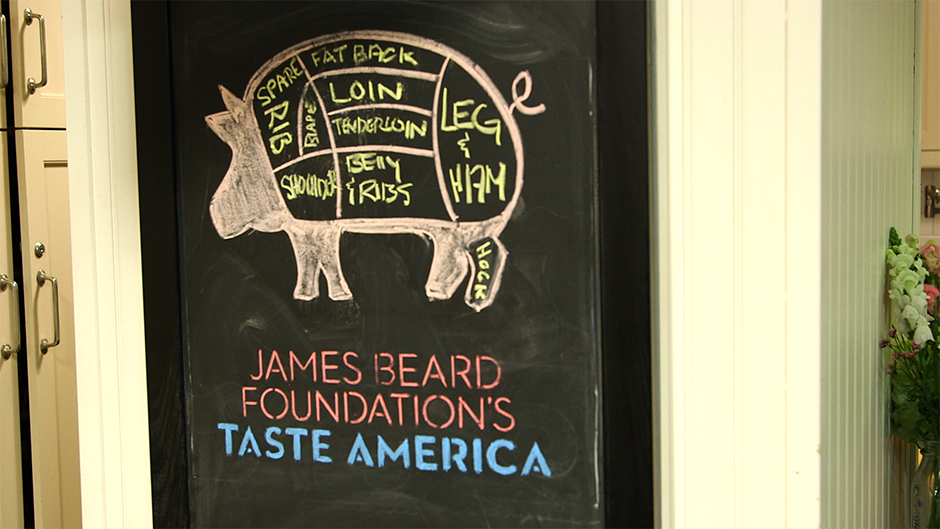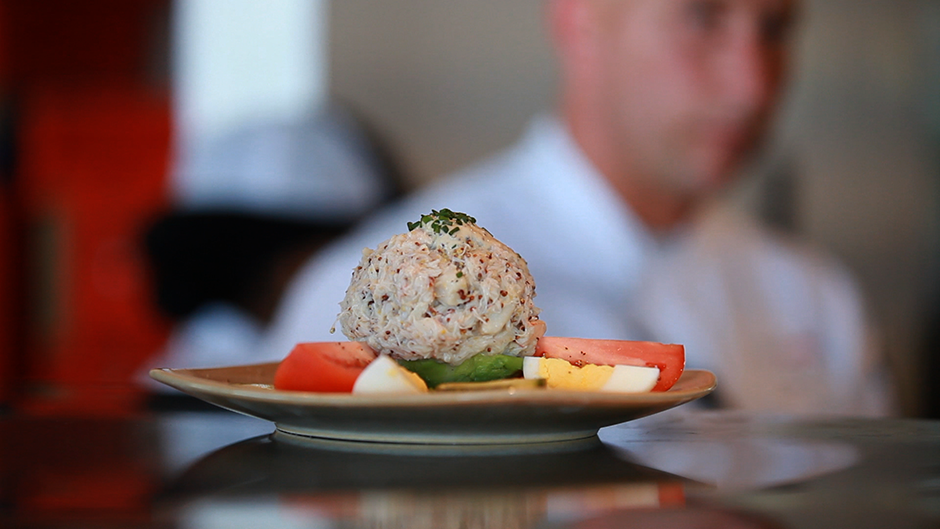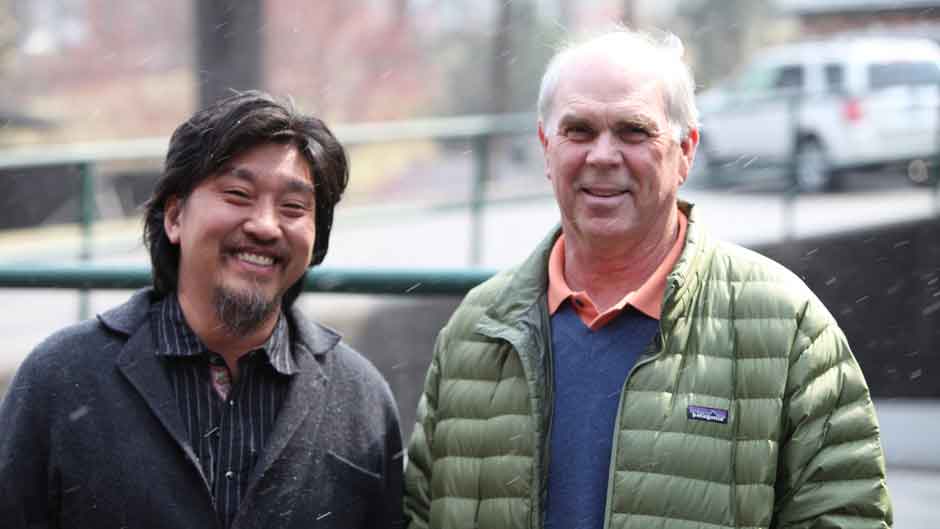Watching Daniel Patterson work is akin to watching a concert pianist play Tchaikovsky.
His body and hands are in perpetual motion, magically hitting the right note every millisecond. Observing him, you get the sense that he is hearing the symphony in his head, beats ahead of the average listener. He knows the movements intimately and plays the role of both pianist and conductor, leading his orchestra through every crescendo and diminuendo.
Daniel Patterson’s career is at a point of intense crescendo with no sign of slowing down. A Massachusetts transplant to Northern California, it took him some time to adjust to his Pacific scenery. A couple of restaurants and a new marriage gave him the perspective he needed to embrace the California culture and the ingredients he relies on today at Coi and his other restaurants in California. A thoughtful and disciplined chef, Patterson approaches recipe creation by thinking about the people who will eat his food.
“I’m from Massachusetts and my wife is third or fifth generation Californian. I learned from her about the plants that grow in this area that have been used for eating, for sustenance, and for medicine for thousands of years. And I was very interested, because as someone who’s not from here originally, what I really wanted was a way to connect to people who are from here.”
We spent two days with Daniel and observed just how integral hyper-local ingredients are to his dishes. We foraged for lichen and cypress in an undisclosed location that Daniel knows as well as any walk-in refrigerator he has stocked himself. He walks with purpose in the forest. He sees the forest from the trees, sees the bark from the lichen, and sees the green-gray lichen from that which is just simply green (and inferior in his opinion). He knows exactly what he seeks and is meticulous about gathering it. When the Beef Encrusted in Lichen dish is on his menu, it takes his team 20 hours a week to forage for the ingredient, and that does not include the time it requires to clean, boil, strain, boil again, strain again, dehydrate, and eventually grind it into a spice-like dust consistency that will adhere to the beef. We observed this process as he created the recipe in his kitchen.
Daniel’s dishes are simple in that there are only a few ingredients on the finished plate, but complex in that their sum is greater than their parts. Because of this simplicity, each ingredient must be perfect, must be handled perfectly in order for the dish to sing.
“If there’s anything wrong with the ingredients, anything wrong with the cooking, it really stands out. So we try and capture things at deep moments when their flavor is at their height.”
This intense focus on perfection has propelled Daniel to where he is today. A chef who has earned two Michelin Stars and his own version of tranquility in Coi. Daniel is at peace with his accomplishments yet shirks complacency. He does not forget who is on the other end of that plate, and it’s not just guidebooks or critics or foodies, but it’s you and it’s me and it’s those he hopes to give joy through his food.
“One of the most important things about Coi, one of the things that I’ve always kept in mind, is that we’re cooking for other people. We cook for our family, for our friends, and the emotion around that — of creating a table and a sense of togetherness and belonging — is something that is central to any kind of cooking. We’re very focused on the emotion and making sure that there’s a purity, a generosity around how we’re approaching this act of cooking for people.”






